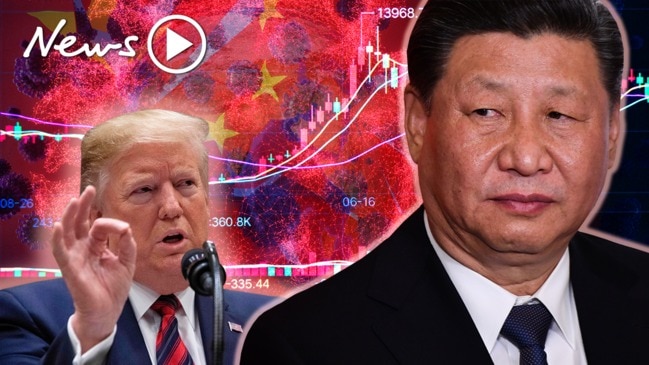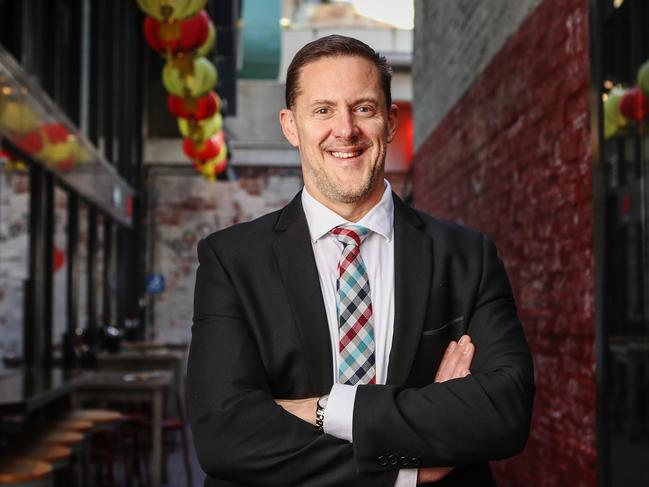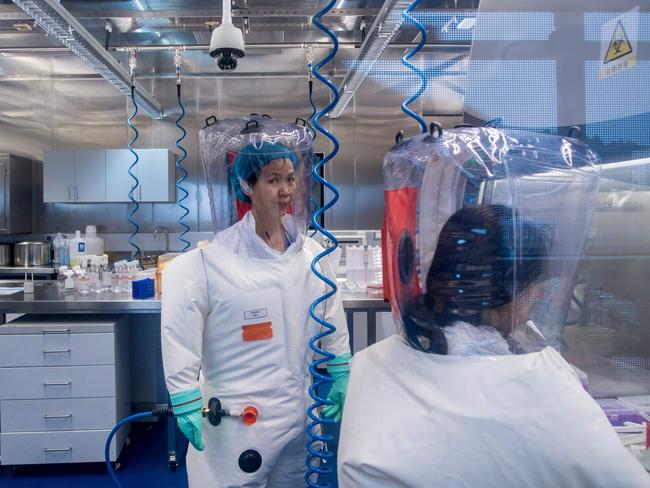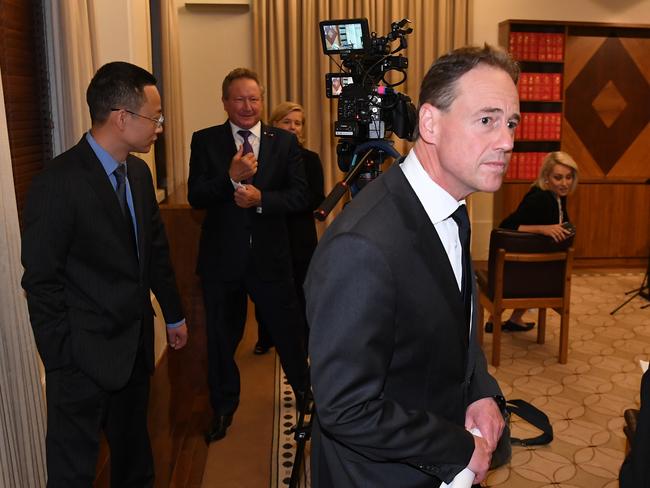What Aussies really think of China
We’ve heard what Scott Morrison and ‘Twiggy’ Forrest have had to say about China, but a new survey has just revealed exactly what everyday Aussies think about our biggest trading partner.

Coronavirus
Don't miss out on the headlines from Coronavirus. Followed categories will be added to My News.
Australians overwhelmingly suspect Beijing of a cover-up in regards to the coronavirus crisis, and believe China poses almost as big a risk to their future interests as a global recession.
Those are the key results of a new survey conducted over the weekend by the mobile finance app Humaniti.
Of the 914 Australians who participated in the survey, 87 per cent said they believed Beijing had not been transparent in relation to COVID-19, and 83 per cent said China had not handled the crisis well.
When asked about Australia’s response, the results were completely inverted. Eighty-four per cent of people surveyed said Australia had done a good job of managing the crisis, and 90 per cent believed Canberra had acted transparently.
The results come amid escalating tension in Canberra’s relationship with Beijing.
China is reportedly threatening to put big tariffs on Australia’s $1.5 billion barley trade after the government urged an international review into the origins of COVID-19 – a possible reprisal that Prime Minister Scott Morrison said on Monday would be “extremely disappointing”.

Professor James Laurenceson, Director of the Australia-China Relations Institute at Sydney’s University of Technology, said much of Australia’s current scepticism towards China’s government was warranted, but was not in fact a new phenomenon.
“In Australia we’ve never kidded ourselves that China is a bastion of transparency. And we’ve learnt to factor that into our decision-making,” he said. “For example, it is almost certain that Australian medical authorities recommended the government close the border to Chinese visitors very early on because they had doubts about Chinese data on the extent of the spread. This turned out to be the correct decision.”
In a list of possible threats to Australia’s future, the biggest group of survey respondents (36 per cent) selected a global recession, but almost as many (34 per cent) nominated China. Seventeen per cent opted for climate change.
Although China was a source of concern for many survey respondents, Prof Laurenceson said Chinese demand for Australian goods and services would also be vital for Australia‘s economic recovery, and that demand was expected to grow 1.2 per cent this year.
He compared Australia’s situation to Canada and the UK, both of which face substantial declines in their respective primary export markets this year.
“Plainly Australia’s robust economic relationship with China is preferable to the situation these other countries find themselves in,” Prof Laurenceson said.

Dr Graeme Smith from ANU’s College of Asia and the Pacific said “we can’t live without each other, at least at the moment”.
“Other countries can talk about decoupling and so forth, but somewhere between a quarter and a third of our trade volume is with China, and you can’t change that overnight.”
Dr Smith said business people such as Andrew “Twiggy” Forrest “who are at the pointy end of doing business with China won’t share the sentiments [of the survey respondents]”.
“People who deal with China on a daily basis will often find that they are good to deal with,” he said. “If you are in that world you may not realise how out of step you are with the attitudes in the broader community.”
So called “face mask diplomacy” was helping China win friends in countries such as Mexico and Israel but it would be unlikely to work in Australia, Dr Smith suggested.
“I’ve long been of the belief that to a degree Beijing doesn’t really care what ordinary Australians think of it, but it does care what its diaspora thinks of it,” he said.

Compared to Russia, which genuinely seemed not to care about its popularity, “the Chinese leadership wants to get at least respect from the global community and certainly some degree of affection,” Dr Smith said.
“But with their way of approaching the world in a friends-and-enemies way, it’s hard to see how they go about doing that, particularly in countries where they’re already struggling as far as public perception goes.”
Dr Smith said there was undoubtedly an element of racism in Australia’s attitudes towards China, citing the drop-off in customers at Chinese restaurants in the early days of the COVID-19 outbreak as an example.
One third of complaints of race-based discrimination received by the Australian Human Rights Commission since the start of February have related to coronavirus.
But Dr Smith also said that easy accusations of racism thrown around by the Chinese Communist Party should be taken with a grain of salt.
“Part of the M.O. of the United Front Work Department and other agencies like that is to try to sow greater mistrust in the Chinese-Australian community of Australia being a racist country. It’s a very standard thing that they run.
“The weaker the ties of the Chinese diaspora to the host country, in theory, the stronger their ties to the party.”
Originally published as What Aussies really think of China
